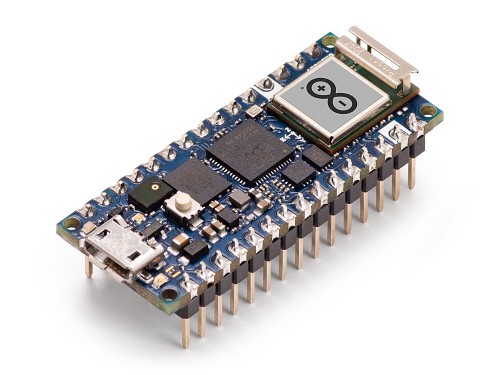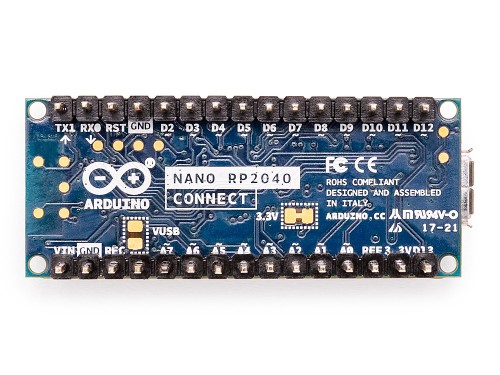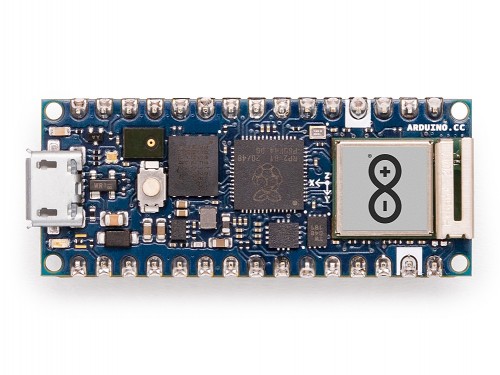Arduino Releases Its WiFi-Enabled RP2040 Board
Arduino may be the last of the official partners to release its RP2040 powered board, but it seems it may have left the best till last. Here we see the Arduino Nano RP2040 Connect, the first official Raspberry Pi Pico alternative with onboard WiFi.



The Arduino Nano RP2040 Connect is powered by the same RP2040 SoC, a dual-core Arm Cortex M0+ running at up to 133 MHz, 264KB of SRAM, and 16MB of flash memory as the Raspberry Pi Pico, but this is where the similarities end.
The biggest addition is onboard WiFi and Bluetooth 4.2, provided by a u-blox NINA-W102 chip, used on some models of Arduino for the past few years. This means that the 1.7 x 0.7 in (43.18 x 17.78 mm) board is ready for IoT projects with no additional extras. Other notable additions are a built-in mic that you can use for sound activation, audio control, and voice recognition and an Inertial Measurement Unit (IMU) which can be used to measure angular forces, orientation and be used for simple gesture inputs.
The GPIO pin layout does not follow the Raspberry Pi Pico layout; rather, Arduino has quite rightly used the same pinout as previous Arduino Nano boards, such as the Arduino Nano 33 IoT. This means we have 14 digital pins, some of which have double duty for UART, SPI and I2C. There are also eight analog inputs, the most of any RP2040 board.
Software support comes via the usual options. The Arduino IDE, including version 2.0, is compatible with the Arduino Nano RP2040 Connect. Arduino's IoT cloud platform is also supported, enabling GUI applications to be written for common data science and remote control projects. Support for MicroPython and CircuitPython will also be present, but tweaks may need to be made to use WiFi / Bluetooth and the onboard sensors.
How much will this board cost? The launch price is €22 (excluding taxes), which converts to around $27, making it currently the most expensive RP2040 board on the market.
Get Tom's Hardware's best news and in-depth reviews, straight to your inbox.

Les Pounder is an associate editor at Tom's Hardware. He is a creative technologist and for seven years has created projects to educate and inspire minds both young and old. He has worked with the Raspberry Pi Foundation to write and deliver their teacher training program "Picademy".